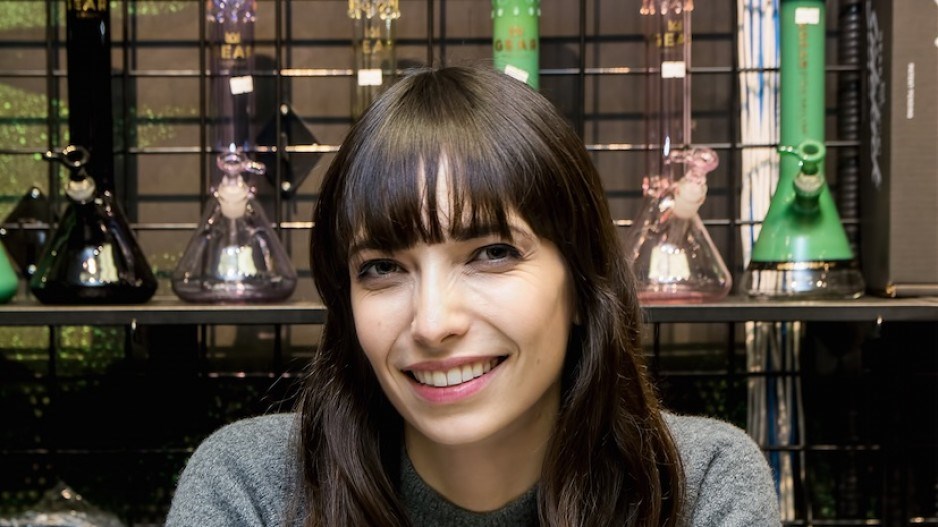The Canada-wide shortage of legal cannabis has prompted several provinces to restrict retail sales, but many entrepreneurs in B.C. remain keen to secure provincial retail licences, even at the risk of having empty shelves this spring.
Cannabis shortages prompted Quebec to reduce its weekly days of operation to four at its government-run stores, while Ontario has placed a limit of 25 on the number of private stores eligible to start operating in April. Alberta stopped issuing new licences for retail cannabis stores after its government-run distributor received only about 20% of the stock that it ordered from federally licensed producers.
The legal cannabis shortage in B.C. has prompted the government’s BC Cannabis Stores consumer platform to include a “back in stock” section on its website to help consumers find recently restocked products.
Private retail entrepreneurs, however, have been lucky at getting stock so far.
Earth’s Own Naturals owner Laurie Weitzel told Business in Vancouver that her licensed private cannabis store in Kimberley has had no trouble getting most desired products from the only place where it can legally buy cannabis: the British Columbia Liquor Distribution Branch (BCLDB).
But she added that it has been challenging getting some cannabis oils via the BCLDB.
“We would love to see more supply from some of our favourite licensed producers, like Whistler [Medical Marijuana Corp.], because they are organic, and that is where we came from.”
With only six private cannabis stores and one government store licensed in B.C. as of January 4, some market watchers speculate that B.C.’s legal cannabis shortage is not as acute as in other parts of Canada because the province’s black market continues to thrive.
Dozens of illegal stores in operation in Vancouver and other parts of the province are feeding demand that would otherwise go through legal cannabis retail channels.
Cannabis industry expert Deepak Anand pointed to Health Canada statistics from December that showed that 4,504 kilograms of legal dried cannabis was sold in October after sales launched October 17.
Licensed producers, many of which are waiting for sales licences, had more than 21 times that amount sitting in inventory on December 18, according to Health Canada.
“There still is a shortage of product, in general,” Anand said, “but the faster Health Canada can license people to start to sell cannabis, the more product will be in the market.”
Althing Consulting principal Ian Dawkins said while on a panel in December, at the O’Cannabiz conference in Vancouver, that many entrepreneurs now in the black, or “grey,” market in Vancouver are “staring at the barrel of a gun because they are worried about opening their stores and having literally nothing on the shelves in April, May and June.”
He suggested that many might therefore prefer to stay outside the legal sales funnel.
Entrepreneurs whom BIV spoke to, however, remain eager to get a legal retail licence to operate in Vancouver, even with the City of Vancouver charging $33,097 in business licence fees on top of more than $9,000 in initial provincial fees – far more than any other municipality in the province.
Three retail cannabis stores in Vancouver have received licences:
- City Cannabis Co., which received its licence last week and opened its doors for the first time at Unit 7291 at 7289 Fraser Street during the evening of January 4 to become the first legal cannabis store to open in Vancouver;
- Evergreen Cannabis Society, which received its licence in December and opened for business at 2868 West 4th Avenue on January 5; and
- City Cannabis Co., which received its second retail licence for a store last week and owner Krystian Wetulani told BIV that he expected the location at 610 Robson Street to open January 9.
Cannabis Culture principal Jodie Emery said that she and her team have been frustrated in their attempts to get development permits for cannabis retail licences. One challenge was that the city did not post a link to business licence forms on its web page that explained how to get a licence for a cannabis store.
Getting a development permit is the first step in the process.
The city maintains that all forms are on its website, and a spokesman told BIV that the cannabis retail licensing page may soon have the link to development permit forms.
Village Bloomery owner Jeremy Jacob told BIV in December that he believes he is close to being licensed for a cannabis store at 1540 West 2nd Avenue.
“We were never in the group that sued the city,” he said.
“It’s not [hard to get a development permit] if you’re in the right proximity, and if you’re working proactively, or constructively, with the city. If you’re outside that proximity, and in a contentious position with them, you will have a very hard time.”



